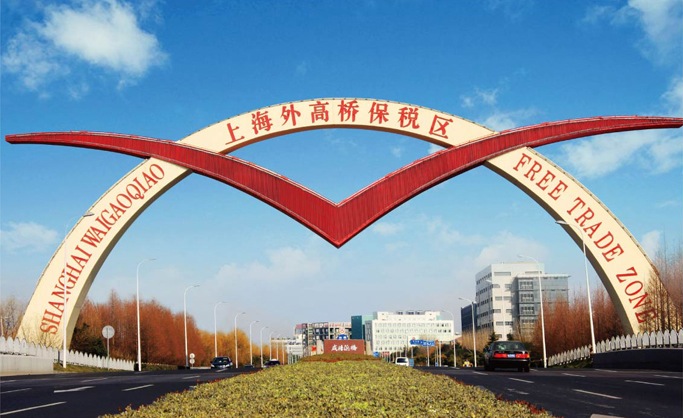SHANGHAI: China has urged Pakistani entrepreneurs to benefit from the Shanghai Pilot Free Trade Zone (SHFTZ), aimed at opening up new economic opportunities and explore new markets for their products.
Briefing a group of Pakistani reporters, SHFTZ Bureau of External Communications Director General Wang Ying said it was an important part of the China’s ‘One Belt, One Road Project’.
He the participation of Pakistani entrepreneurs would not only boost bilateral trade, but the project also allows Pakistani businessmen to introduce their products and expand their ventures outside of their borders.
The journalists were on a short-term training program at the Renmin University, Beijing, organised by the Chinese embassy in Islamabad which was aimed at enhancing mutual understanding and exchange between Chinese and Pakistani media.
The economic zone established in 2013 is spread over an area more than 120 km along the golden coast of the East China Sea. It has registered 23,243 companies, 14,860 of them are newly registered and 2,342 foreign-funded.
Wang Ying said so far 16 countries from the Central and Eastern Europe have their presence and pointed that special facilities were being extended to foreign investors, besides a one-window operation to cut down business costs and time.
He said the strong bonds between Pakistan and China can be translated into stronger economic ties with the availability of a modern Free Trade Zone. He said the Pakistani businessmen can boost their trade by utilising the facilities available and enhance their portfolio. He urged the Pakistani media to highlight the opportunities for Pakistani entrepreneurs who would like to increase their reach beyond the borders.
He said the zone has been specially designed for the countries; part of the One Belt, One Road initiative and would boost the business opportunities of the companies in the zone. He said these companies can extend their footprint in China and beyond.
The director general assured that Pakistani businesses would be fully facilitated and welcomed. He said the SHFTZ would like to have a Pakistani pavilion along with those of other countries and said it would be a big boost for Pakistani companies.
The economic zone was established to target investment management, trade facilitation, financial services and transformation of government functions.
The Waigaoqiao Free Trade Zone, part of the SHTFZ has attracted thousands of companies, making it the biggest special-administered area under Customs in terms of economic output and range of services. It has become an important trade centre in Shanghai, dedicated to building professional trade platforms in several categories: watches, automobiles, engineering machinery, machine tools, medical devices, biomedicine, healthcare products, cosmetics and cultural products.
The media team also visited Sinopec, a leading international energy and chemical company engaged in business in oil and natural gas exploration, production and trading of petroleum products, refinement and marketing. It also deals with the sale of chemical products.
The media team from Pakistan also had an extensive interaction with leading Chinese personalities dealing with the media, mass communications, energy, education and economy.
Earlier in a series of lectures during the short-term training program at the Renmin University, Beijing, leading academicians highlighted the deep Sino-Pakistan ties and the importance of exploring new avenues of cooperation. The speakers termed China a land of economic miracle of the 21st century and said both Pakistan and China can benefit immensely by sharing experiences and optimally benefit from their important location.
University’s School of Public Administration and Policy Professor XU Gyang Jian speaking on “Chinese Economic Progress, Challenges, and Reforms,” said with committed and powerful leadership, the13th five- year plan (2016-20) highlighted the Chinese economic progress, adding that the change in economic structure was the basic feature of economic progress as
Delivering a lecture on ‘Belt and Road Initiatives’, an associate professor of the university said that China was the second largest oil user and the biggest user of energy in the world and was trying to develop an environment-friendly technology.




